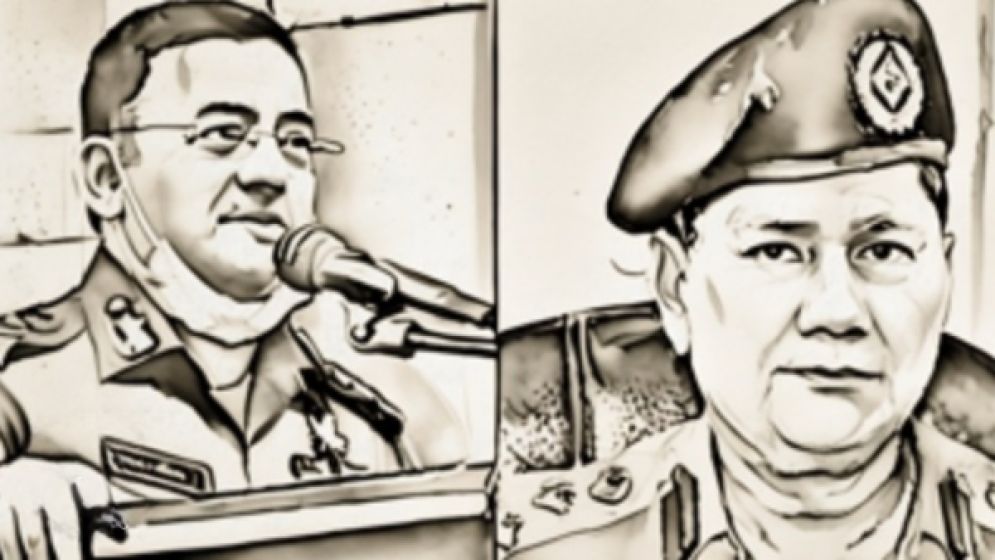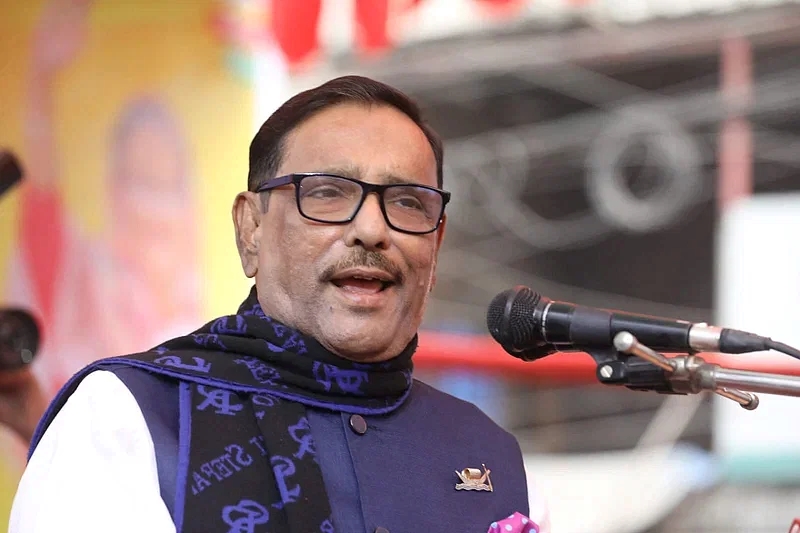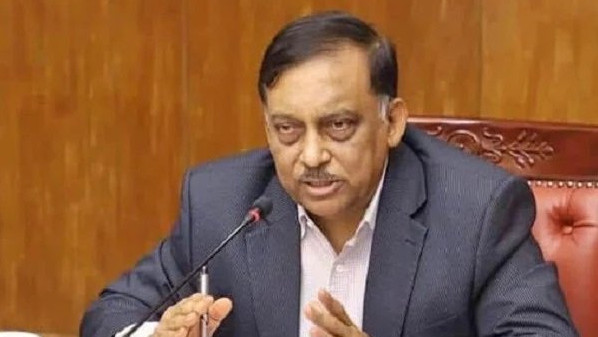Why responses from AL ministers regarding Benazir and Asaduzzaman Mia's corruption warrant concern?

The massive corruption scandal involving two former high-ranking police officers, Benazir Ahmed, and Asaduzzaman Mia, has become a major talking point in Bangladesh recently. The initial reports of their illicit wealth only hinted at the vastness of their fortunes.
As more information came to light, the extent of their ill-gotten gains, both domestically and internationally, became even clearer.
People began discussing how these individuals amassed such wealth, the alleged protection and support they received from the Awami League government, their lavish lifestyles, and the extravagant spending habits of their children.
The audacious nature of their crimes and insatiable greed quickly became widely known through public discourse.
Despite the growing attention to this scandal, the Awami League government and other official institutions remained noticeably silent, seemingly choosing to ignore the issue.
However, the government's silence was short-lived. Due to mounting political pressure or the need for damage control, they eventually had to address the issue. The Anti-Corruption Commission initiated an investigation against Benazir Ahmed, and a Dhaka Court ordered the confiscation of his properties.
Despite these actions, public skepticism remains regarding their effectiveness. Nonetheless, these events have galvanized public opinion against corruption in recent weeks.
In light of this, the responses of certain government ministers, particularly Obaidul Quader (general secretary of the ruling party and road transport and bridges minister) and Asaduzzaman Khan Kamal (home minister), are of particular interest.
Let’s examine their statements in more detail.

Obaidul Quader
During a rally marking the 75th founding anniversary of Awami League this week, the ruling party’s secretary general criticized broad accusations leveled against the police force.
Now, a crucial question emerges: who exactly is making these sweeping statements? Do such remarks unfairly tarnish the reputation of these uniformed officials?
It's important to remember that we're discussing two retired police officers here—both Benazir Ahmed and Asaduzzaman Mia—who are no longer in active service and are now civilians. So, if there are allegations of corruption against them, why does Obaidul Quader believe it reflects negatively on the entire police force?
Corruption can be found in any profession. Criticizing an individual’s misconduct does not imply a blanket condemnation of their entire profession. In Bangladesh, corruption is prevalent among doctors, engineers, government officials, and even businessmen. Critiquing their actions should not be equated with disparaging their respective professions.
The road transport and bridges minister referenced BNP Secretary General Mirza Fakhrul Islam Alamgir in his speech, seemingly downplaying the seriousness of the situation. "Today, Fakhrul and his followers are spreading rumors and unfairly targeting the police. They harbor ill intentions towards the army," he asserted.
The AL general secretary conveniently overlooked the fact that it was the US State Department that imposed sanctions on former Bangladesh army chief General (retd) Aziz Ahmed. What exactly is Fakhrul's connection to this?
Furthermore, in his criticism of the BNP, he introduced new adversaries for the party—the police and the army. This is utterly absurd! Mr. Quader is employing flawed logic to justify his stance.
Regarding numerous corruption reports, Obaidul Quader accused certain media outlets of disseminating propaganda and portraying the ruling party as corrupt.
However, he should specify which newspaper or media house he is referring to. Otherwise, who is actually making sweeping accusations now? It seems Quader himself made an unsubstantiated generalization immediately after accusing others of the same offense without presenting any evidence.

Asaduzzaman Khan Kamal
When questioned by journalists about ex-IGP Benazir Ahmed and former DMP commissioner Asaduzzaman Mia retiring with allegedly ill-gotten wealth, Home Minister Asaduzzaman Khan Kamal's response in a press briefing fueled public skepticism about the government's willingness to hold these individuals accountable.
The minister claimed the allegations against the ex-DMP commissioner were based on assumptions and lacked specific charges. However, media reports detailing Asaduzzaman Mia's alleged corruption included verifiable information about his and his family's extensive property holdings, valued at over Tk 237 crore.
This raises questions about the minister's dismissal of the allegations and reinforces the public's perception that the government may not take meaningful action against these figures.
The Home Minister's response to allegations against former police officials raises concerns about the government's commitment to addressing corruption.
If publishing reports based on conjecture warrants punishment, the government's inaction against the journalist reporting on the ex-DMP commissioner's corruption seems contradictory.
Furthermore, the Home Minister's attempt to justify the increase in the ex-DMP commissioner's assets by citing rising land values appears to be a weak defense. It is unusual for a high-ranking official like the Home Minister to offer such explanations, raising doubts about the government's seriousness in holding the ex-cops accountable.
Similarly, the Home Minister's defense of the former IGP, suggesting his wealth could be attributed to his UN missions without concrete evidence, further reinforces skepticism about the government's intentions.
These responses collectively raise questions about whether the government is genuinely committed to addressing corruption within the police force or merely protecting its own.
Why statements from two ministers warrant concern?
The responses from two top ministers against the allegations against former police officials Benazir Ahmed and Asaduzzaman Mia raises questions and fuels public skepticism. The Home Minister's assertion that discussion about Benazir Ahmed's wealth should be withheld until his explanation raises concerns about transparency and accountability.
The lack of information regarding his whereabouts further adds to the controversy.
While both officials have not been convicted, the extensive media reports detailing their alleged corruption and questionable wealth have shaped public opinion. The evidence presented in these reports raises serious doubts about their innocence, contradicting the government's seemingly sympathetic stance.
The statements made by both Obaidul Quader and Asaduzzaman Khan Kamal have inadvertently fueled public perception that the government is lenient towards these former officials, leading to further skepticism and distrust.
—
Shaquib Ahmed is a journalist and researcher

